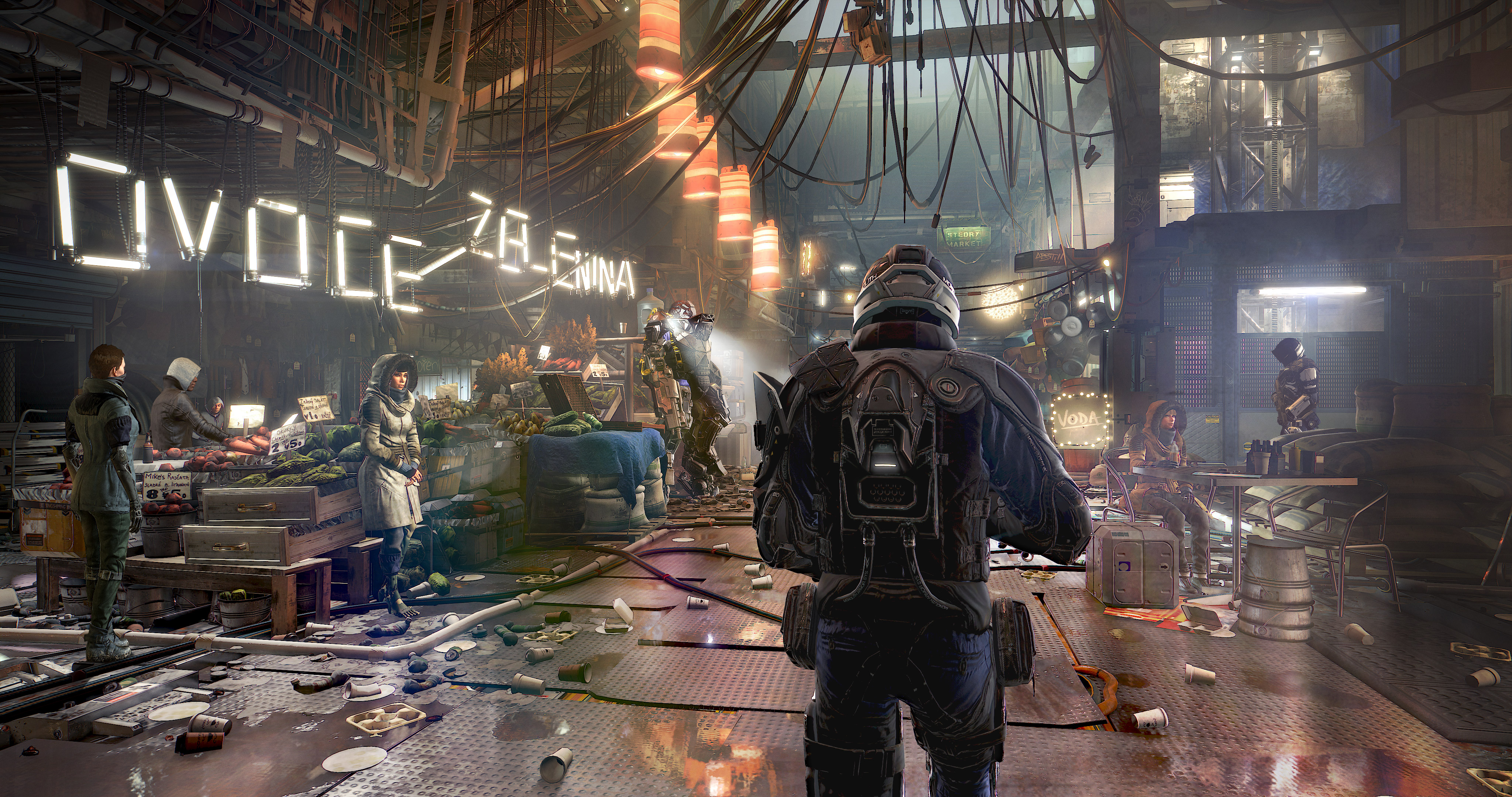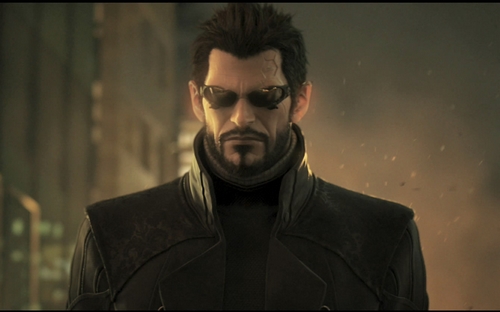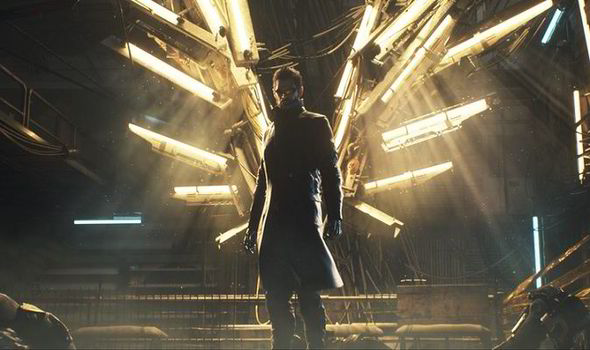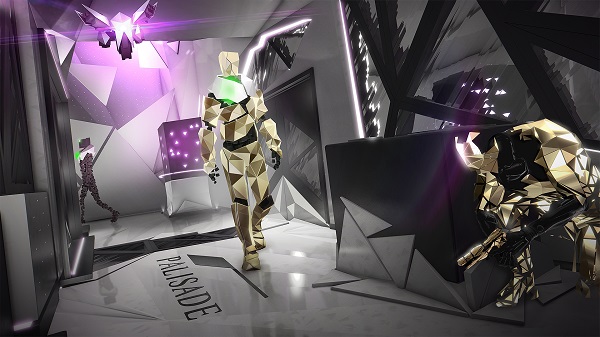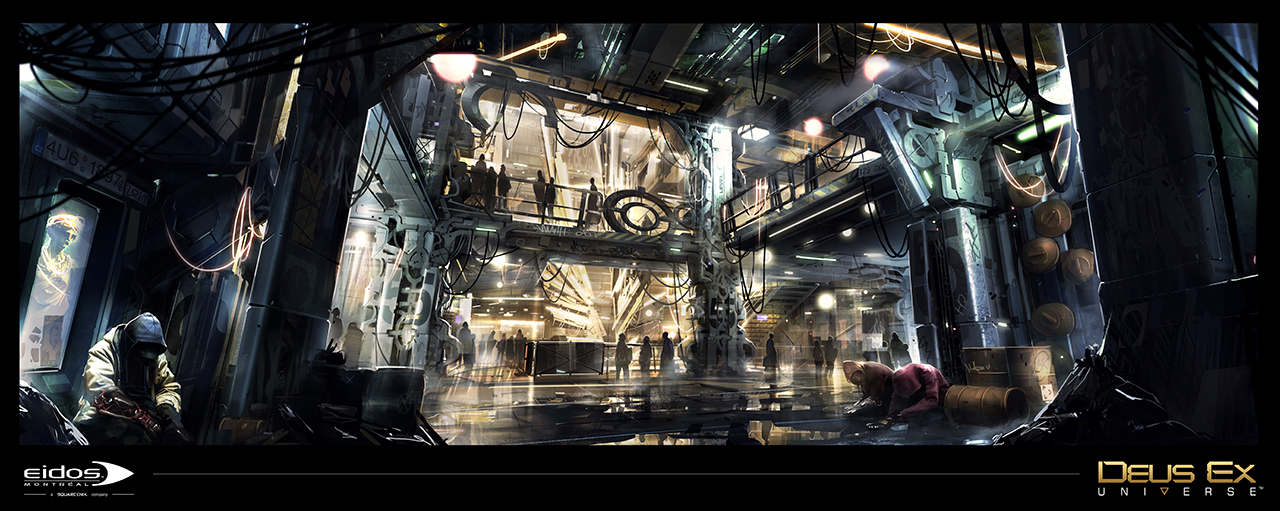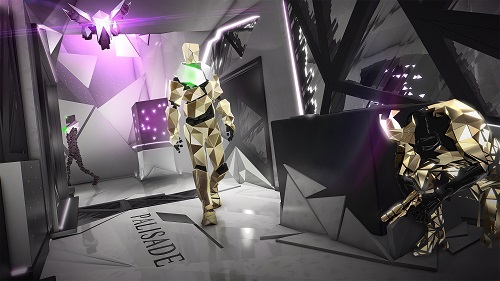
When I had the opportunity to play Deus Ex: Mankind Divided the last week, I also had the great luck to meet Olivier Proulx, the producer of Deus Ex: Mankind Divided and chat to him about his experience when developing the game.
Andrew: First of all, thank you for taking the time to speak with me today. Obviously you’re a producer on the game, so can you give me a bit of an overview as to your role over all when working on Deus Ex: Mankind Divided?
Olivier Proulx: Sure, so, sometimes people don’t necessarily know what a producer does on a videogame production. Basically, as a producer, a big part of my job is managing the team, so making sure that we’re following the budget and that the team is structured in a way where people work well together. Following up on priorities and all those fun things. There’s a big leadership aspect to the role as well. I think that when you get a big AAA production like this you have many people working at the same time and you have to give day-to-day support and make sure people work well together, and that they have feedback when things go well and also feedback when things don’t go so well. That’s a huge part of my job and there’s a lot of communication as well. Pretty much working closely with the Creative Director, our Game Director and our Creative Team. They have a lot of crazy ideas, right? We have make sure they fit within what we can do and can be done properly by the team, so that’s where I come in.
A: From what I’ve seen and played so far of Mankind Divided, it seems to be pointing towards a darker story than what we saw in Human Revolution. Do you think that’s an accurate representation of the story and how do you think that will bleed through to player choice?
O: I would say that it’s darker, especially from the onset. You know Human Revolution wasn’t all sunny and beautiful, and it was a bit of a dark story too, but there was this element of hope and discovery about what your transhumanism could bring to the human race. The debate around it was a core theme of the game, so that’s where we went with the black and gold pallet and that sort of renaissance feeling to the game. In this game it’s more on the darker side and what happens when technology goes wrong. You know, all the politics being played around such a catastrophic event that happened at the end of the previous game. So we didn’t set out to make a darker game for the sake of a darker game, I think that’s where the story kind of took us and we felt that exploring those themes of people being pushed away and fearing what’s different. Those unfortunately exist in the real word and certainly in a cyber punk type of game that’s set in the near-future, it’s cool to explore those themes through the eyes of a player and have a very, sort of, visceral experience because you’re actually playing through it.
So, you know, how the player will impact how things are being played out? Yes, you definitely have an impact on big political elements of the game, which is the main story, but Mary (Story writer) invested a lot as well in the smaller personal stories that you get to encounter in the side missions. So you get to work around Prague and meet people that for example try to stay away from the Golem ghetto and you might or might not help them depending on what you do in the game so you have a real impact on people’s lives as well. So we invested a lot in making sure that the world reacts to how you play, in the missions, the side missions or just generally your actions tend to have a consequence in the world.
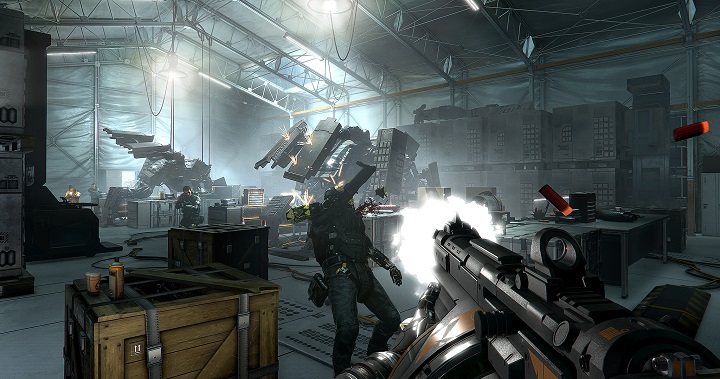
A: Speaking of consequences, one of the biggest choices in Human Revolution was deciding what to do at the end of the game. When picking an ending to effectively begin from canonically in Mankind Divided, what challenges did you face early on either picking one ending or picking pieces from multiple endings to steer your direction?
O: That’s exactly what we did, we picked aspects of all the endings. We didn’t want to have a player come in and feel that their ending didn’t make any sense in the story of Mankind Divided. We wanted to have all players come in and see that their ending could lead up to this situation. We had to do this because unfortunately we didn’t track the choice and consequences in Human Revolution, so that’s what we had to play with. But, we felt that keeping things a bit ambiguous, keeping what Adam’s done between the two game a bit of a mystery, that we could play with this and set up Mankind Divided. You know, when something that big happens in the real world, do you and me know what really happened exactly? So that’s where we kind of set up from in terms of the game. It’s gives us cool opportunities as well. There’s a side quest early on in the game where you have a chance to explore and find out a bit more about what happened to Adam between both games. So you can delve into it a little bit more.
A: Human Revolution was widely considered an excellent game with great critical success, but one of the weaker aspects was the combat. How important was it from a studio perspective to correct that in Mankind Divided?
O: It was super important. It was one of the most important things that we wanted to improve in this game. You know, with the combat, it was like two aspects for us with combat. One was more obviously just gameplay feel in general, so you know the controller with Adam on screen is much more responsive. If you go with the iron sights it much more precise and we invested a lot in the cover system for your tactical combat and how it helps for your stealth. So everything with relation to how it feels on the sticks, we put a lot there like with movement. That was really important to us.
Specifically, for combat oriented players, we did create some new augmentations that are a bit more aggressive. The goal was not to turn this into an action run and gun game, it was really about giving more freedom to the player. We feel that Deus Ex can be perceived as a stealth game, but the way that you view it isn’t necessarily as a stealth game. It’s a game that gives a lot of tools to players and you can be super creative with how you play. So adding more combat focused augmentations just gives you more ways to customise your character to your playstyle. We thought that this was important.
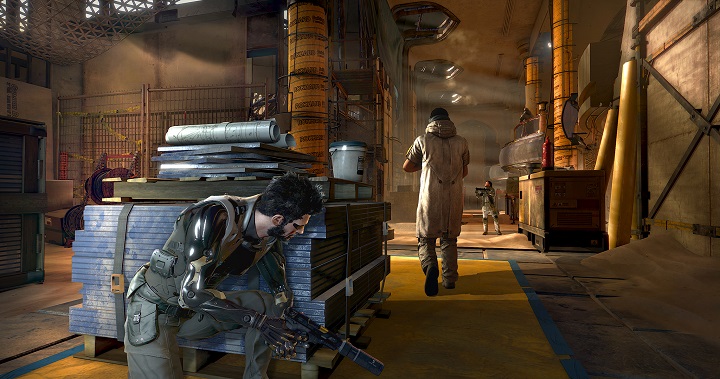
A: Obviously, with a large amount of customisation there’s obviously so many different ways that a player can go through enemy encounters. How difficult was it to balance these encounters around such a variable player load out and also with the much larger open environments?
O: Very difficult. I would say the AI for this production was a constant challenge. It bit us a few times where we thought we had something good but we kept finding new bugs with it and the reason why isn’t because the isn’t good, the teams great, it’s just that it has to be so flexible in many different situations. So, if you play stealth the AI needs to be patrolling in a way that’s credible and is fun to navigate your way through. It has to propagate alarms in such away and all that. But when you break stealth with the more open environments that we designed it has to fluidly move into combat. Cover system combat and flanking you and react to where you could be hidden. We also wanted to improve how the AI would be reacting if you hide in a corner or if you hide in the vents, which was a weakness in Human Revolution. So we added more depth in the AI, but this just created more difficult. As you can imagine, there’s so many ways to play the game and so many ways to be creative with the different mechanics that you have that it required a lot of iteration and testing and very thorough processes to test everything.
But it was a fun challenge, we had a super experienced team working on this, most of the technical designers and the technical level designers. The people that were sort of owning the AI component were veterans from Human Revolution. So when they rebuilt the systems I think they had a good idea of where to go. At some point I think we just didn’t expect that with the environments being that complex, we didn’t expect that amount of debugging to come with it. But, we went through it and we survived. We’re here to tell the story today, so we’re good!
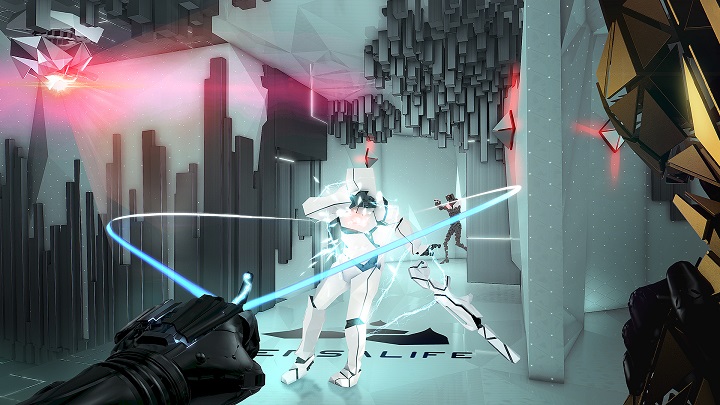
A: With the announcement of Breach mode, you’ve moved away from the standard PvP Death Match style modes that most single player focused games have included. Was there ever a push within the studio to go down that route?
O: No, there was no push for a PvP multiplayer. What we were pushing for was just, we need something else to kind of complement that main story experience. We didn’t feel that we had to do a PvP experience because that’s what other games do. What we’re good at in Eidos Montreal is creating good gameplay systems that are wrapped up in very involved narrative structures and creating great worlds. We have great designers for this, so as we were thinking about what we could do we started to think about all that time that we spent developing all those sophisticated games mechanics. They’re so flexible, but not all the players will see them because if you commit to a stealth playstyle or you play in a way where you don’t want to kill anyone you’re a bit limited in how you can exploit all the game mechanics.
So we thought, can we just get rid of all those constraints and just do more gamey environments where those mechanics shine and we started to dabble with different gym levels and quickly we could see that this was a fun thing to do. Quickly, we could that the team and people were challenging each other like, “I finished it in 5 minutes” and, “I finished it in 2 minutes.” From there naturally we thought that this would be a great way to put it out there and add a bit of a competitive element to it, challenge your friends. We can also build maps in a more creative way, because we’re not limited by the realism. So we thought that this could be a great live mode where we can push content to players who are engaged and keep challenging how you think about Deus Ex.
A: With that, what sort of DLC support can players expect to see for Mankind Divided? Both story content and Breach content?
O: For main game we’re not ready to announce anything yet. Obviously, we have tons of great stories to tell in Deus Ex, so when the time is right we will announce plans.
For Breach, definitely throughout the year we want to keep supporting it with new free content and even additional features that can change how you interact with the game. So that’s going to be the case, it’s a game mode that’s online and that one of the reasons why it is.
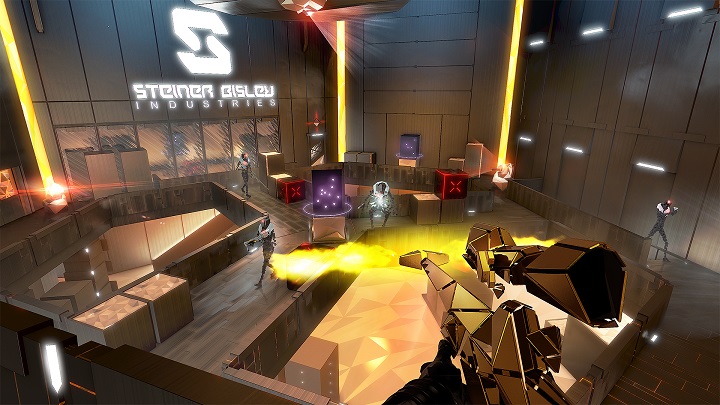
A: I would say that Nixxes is considered one of the greatest port studios out there, ‘god-tier’ if you speak to people on Neogaf. What’s it been like working with them on the PC port of Mankind Divided?
O: We have a great relationship with Nixxes, we’ve been partnering with them for a while now, you know on Thief and Tomb Raider. They’ve always been so good at porting because they have engineers that have knowledge of all the different configurations of graphics cards and the different pc-specific features you want. That’s something we could have done, but we preferred to put our engineering time into developing the Dawn engine and the tools for the content creators and the actual game and gameplay. So they, on their part, they don’t actually have designers. They’re really about porting, which is a tough thing to do, but we partnered with them very closely and they loop back into our QA process. They’re not isolated in their corner doing work, we talk a lot and they depend on our work so it’s been a great relationship. It’s been a great relationship and these guys are doing great work all the time, so it’s cool.
A: Final question from me today, what is your favourite part of Deus Ex: Mankind Divided? That you can talk about, that is.
O: I can definitely talk about it; my favourite part is actually the Prague city hub. That’s a big answer, because it’s such a big part of the game. It’s my favourite part as a player, but also as a producer as well, because we put so much into it. I think it’s a pretty unique offer, I can’t think of a lot of games where you have that level of immersion or that level of exploration at your fingertips. Everywhere that you go oozes with little details and all the side missions sort of being put organically into the environment. I love the stories that we tell in Prague and the living, breathing world aspect. All the characters have little dialogues and their own personalities, so I think that it’s just fun to explore and discover things. Like read the emails of characters and learn their stories and situations. So that’s from a player perspective, but as a producer I’m just so proud of what the team was able to pull off with this. It was a really big challenge and I think it’s come through pretty well in the game so it’s my favourite part for sure.
A: Thank you for your time and I hope the rest of your trip to Australia is great.
Deus Ex: Mankind Divided releases on August 23rd for PC, PlayStation 4 and Xbox One.

